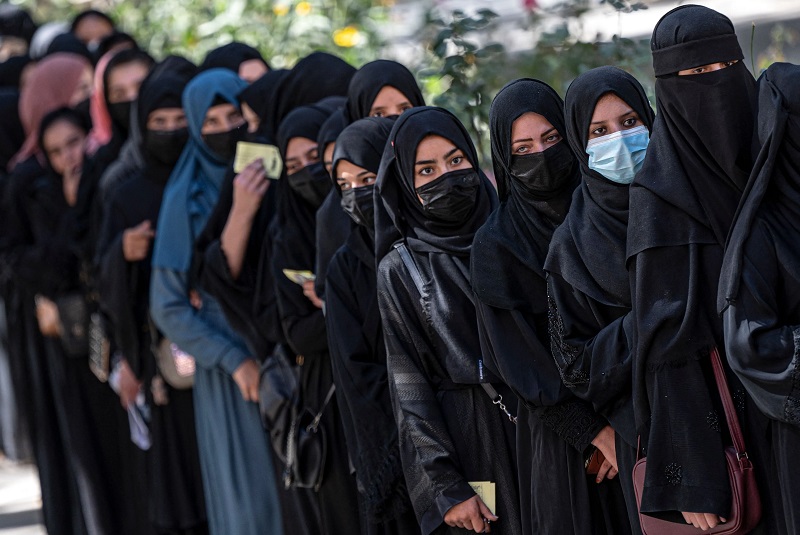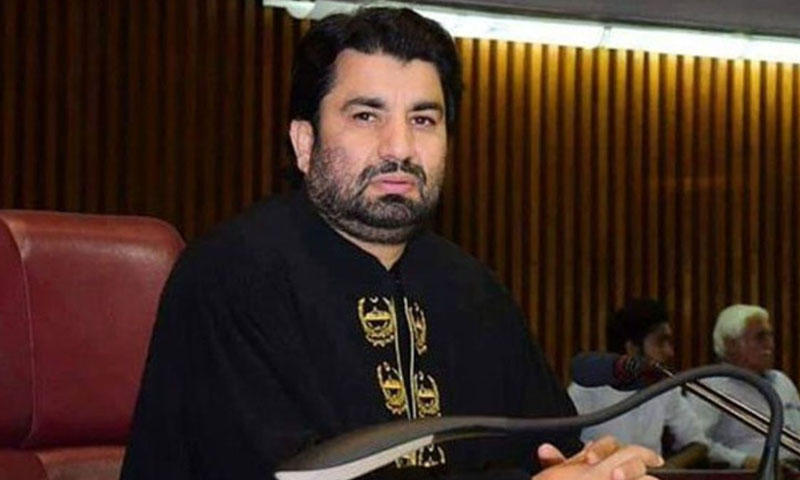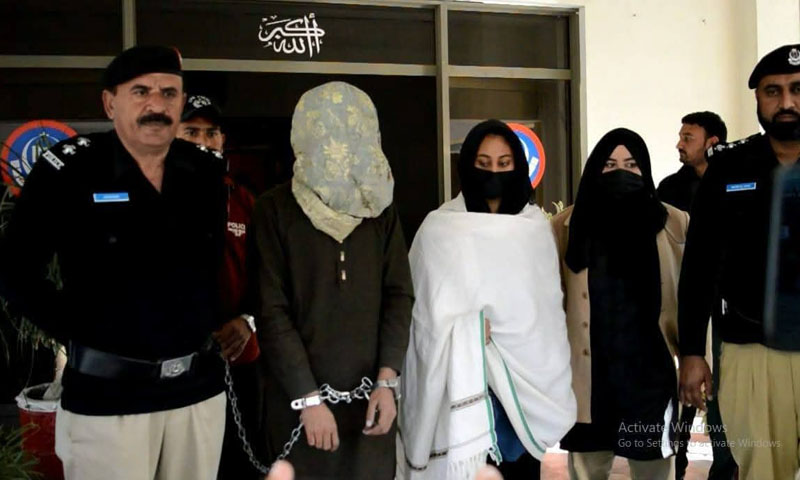- Web Desk
- Feb 09, 2026
KP universities open doors to Afghan girls
-

- Web Desk
- Sep 06, 2023

PESHAWAR: In a compassionate response to the educational hurdles faced by Afghan students under the Taliban regime in Afghanistan, Khyber Pakhtunkhwa universities have started offering admissions to Afghan girls.
In this regard, a high-level meeting was held at Peshawar’s Khyber Medical University. The meeting was attended by Khyber Medical University Vice-Chancellor Dr Zia-ul-Haq, Director of Admissions, and Deputy Consul General of the Afghan Consulate in Peshawar, Mufti Noorullah Hotak, among other officials.
During the meeting, it was decided that Afghan girl students would be granted admissions to all university courses, including BS programmes such as Physical Therapy and Pharmacy. Notably, they will be charged the same fee as being charged from Pakistani students for medical and dental programmes.
During the meeting, Dr Zia-ul-Haq emphasised the significance of this initiative, given the challenging circumstances that Afghan citizens have faced during years of conflict. He highlighted that this opportunity would empower Afghan girl students, especially in the field of medical education, enabling them to serve their homeland effectively.

Dr Zia-ul-Haq stated, “The people of Afghanistan have endured hardship during the past four decades of war, resulting in the destruction of infrastructure and disruptions to the education and healthcare systems. We aim to provide Afghan students with quality medical education so that they can contribute to their nation’s recovery.”
Alamgir Khan, a spokesman for Khyber Medical University, confirmed that this is the first time that admission offers have been extended specifically to Afghan students, particularly young women. He emphasised that there were no quotas for student admissions, allowing as many Afghan students as possible to benefit from this opportunity.
“We want to admit as many Afghan students as possible because Afghan refugees in Pakistan often face difficulties in accessing education beyond the metric level due to passport and educational document constraints,” said Alamgir Khan.
Furthermore, he expressed hope that this move by the Khyber Medical University would set a precedent for other universities in Pakistan to facilitate Afghan students’ access to education, making it more accessible.
The move by Khyber Medical University is seen as a humanitarian gesture aimed at providing education to Afghan students, which will remain one of the essential pillars of a stable and prosperous society.
Similarly, Abdul Wali Khan University, Mardan, has also granted admission to Afghan students. According to officials, initially, 50 seats have been allocated for Afghan students, allowing them to enroll in any department. This measure aims to improve relationships between Afghan and Pakistani students and foster greater cultural understanding.
The meeting was told that the Afghan people have been living in a state of war for the last four decades, as a result of which a large population is crippled and disabled apart from lack of health facilities. Due to the war, Afghanistan’s infrastructure has been destroyed and people are facing enormous problems in the availability of health facilities.
Mufti Noorullah Hotak said that the ban on women’s education by the Islamic Emirate is just propaganda. The curriculum has been changed up to class 9th and as soon as this process is completed, the doors of education will be opened for female students. He said that the Islamic Emirate of Afghanistan is not in favour of banning women’s education and employment.
While welcoming the admissions for Afghan students on behalf of KMU, he expressed the hope that the relations between the two brotherly and neighbouring countries have been fulfilled in every hour of trial and that these bilateral relations will be better and stronger in the future.
The recent actions by these Pakistani universities reflect a commitment to supporting Afghan students during their challenging times and pave the way for their brighter future through education.




